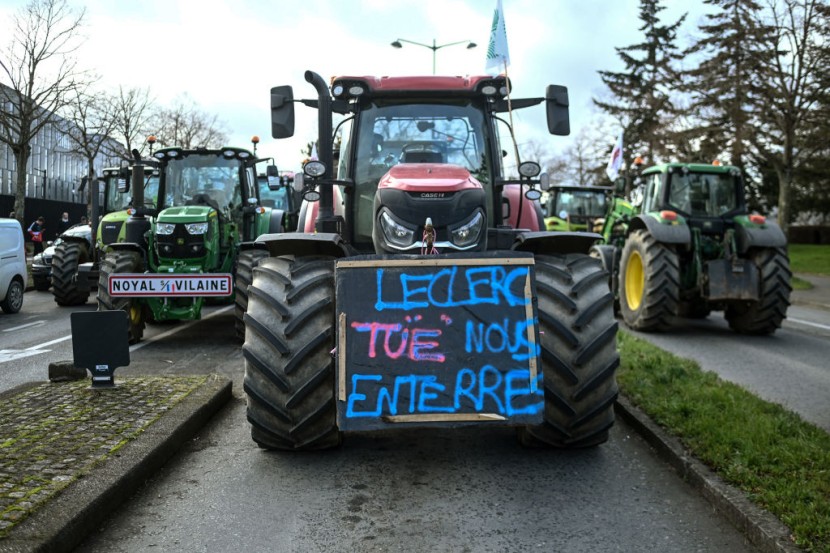French farmers commenced the dismantling of roadblocks in and around Paris on Friday following the French government's announcement of measures totaling over €400 million ($436 million) to address their concerns regarding low earnings, stringent regulations, and perceived unfair competition from abroad.
Major highways in the French capital witnessed protesters disassembling tents, clearing roads, and igniting straw bales previously used as barricades. The removal of these blockades occurred peacefully under the watchful eye of an extensive police presence deployed to ensure operational security, as per ABC News.
French Farmers Secure Commitments After Protests

Arnaud Rousseau, president of the national agricultural union (FNSEA), conveyed a sense of accomplishment at a press conference, stating, "We have been heard on a certain number of points." The Union of Young Farmers echoed this sentiment, with its president, Arnaud Gaillot, urging local offices to cease blockades and transition to alternative forms of protest in response to the government's commitments.
French Prime Minister Gabriel Attal, accompanied by the ministers of economy and agriculture, unveiled a series of measures aimed at addressing farmers' grievances. Notably, the Ecophyto plan, designed to reduce pesticide use, will undergo revision and simplification, responding to complaints about France's stricter regulations compared to other countries.
The government's financial relief package includes €150 million ($162.93 million) for tax and social support for livestock farmers, complementing the €80 million allocated earlier to assist wine producers. Additionally, enhanced measures to combat fraud, including reinforced checks on product origins, were pledged.
The recent week witnessed fervent protests by French farmers, who employed tractors to block key roads into Paris and major highways across the country. The suspension of the protests was announced on Thursday by two main farming unions, following Prime Minister Attal's assurances of financial support, regulatory easing, and protection against unfair competition.
Agriculture Minister Marc Fesneau expressed optimism that the worst of the crisis was behind them but acknowledged that challenges still lay ahead. He emphasized on CNews television, "The issues that we have to deal with and that have emerged in this crisis are still ahead of us," according to China Daily.
Caution Persists as French Farmers Ease Protests
Despite the easing of roadblocks, some farmers remained cautious. Laurent Saint-Affre of the FDSEA union highlighted that while significant progress had been made, certain sticking points persisted, hinting at the possibility of resuming protests in the coming days.
Arnaud Gaillot, head of the Young Farmers (JA) union, pointed out a sense of "fatigue" after ten days of protests and a "desire to put things on hold." In Yvelines, southwest of Paris, the number of vehicles involved in a blockade dwindled, indicating a gradual return to normalcy.
Roadblocks on the A4 and A5 motorways east of Paris were lifted, and in Lyon, all roadblocks were expected to be cleared by Friday afternoon. However, some isolated groups expressed a desire to maintain their positions until Saturday, while others eyed a longer presence leading up to France's Salon de l'Agriculture trade fair opening on February 24.
The largest agricultural union in France, the FNSEA, stressed that government measures needed to be put into effect immediately before the opening of the trade show and that a legislation relating to them needed to be passed by June. Concurrently, an assembly of several European farmers convened in Brussels, whereupon French President Emmanuel Macron succeeded in obtaining more stringent regulations for the importation of poultry and cereals, particularly from Ukraine, Barrons reported.
Related Article: Vladimir Putin Declares 2024 Reelection Bid as Russia's President
© 2025 HNGN, All rights reserved. Do not reproduce without permission.








